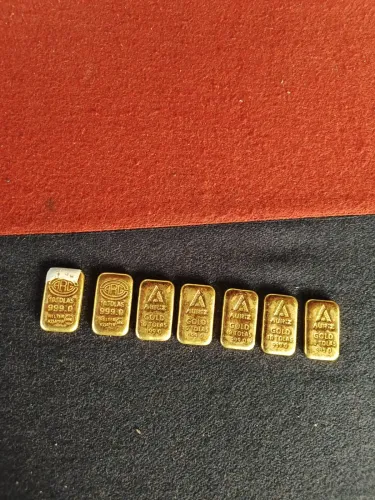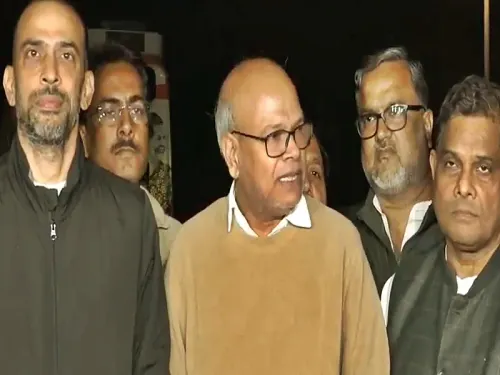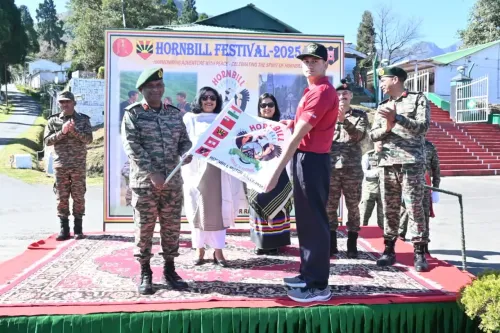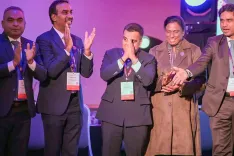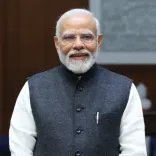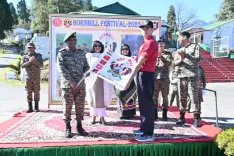Dialogue is the Optimal Approach to Settle Religious Site Disputes: Muslim Forum
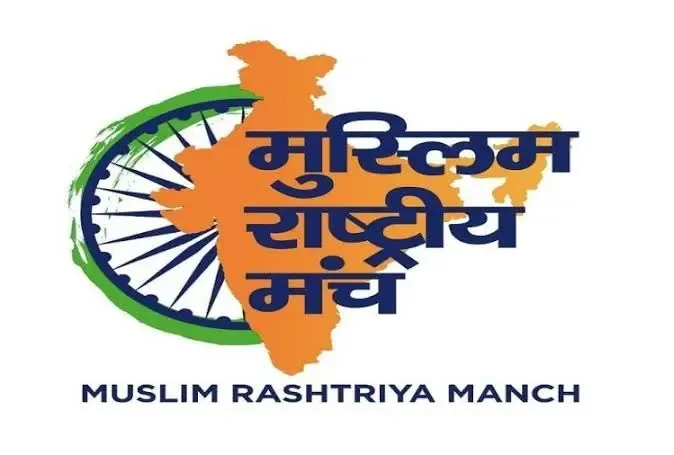
New Delhi, Jan 3 (NationPress) The socio-political group Muslim Rashtriya Manch (MRM) emphasized on Friday the necessity of resolving disputes surrounding religious sites through dialogue. They urged members of the community to pledge their commitment to supporting India's progress, as called for by RSS chief Mohan Bhagwat.
Shahid Sayeed, National Convener and Media In-charge of the MRM, which draws inspiration from the RSS, highlighted that addressing disputes through conversation would promote unity, integrity, harmony, brotherhood, and reconciliation, thereby eradicating hostility.
The MRM's National Convener Council stated that conflicts over locations such as Kashi, Mathura, and Sambhal should be settled through dialogue, aiming to restore historical worship places to the Hindu community.
Additionally, the MRM suggested that abandoned mosques or those no longer used for prayers be returned to the Muslim community for restoration and revitalization.
The forum clarified, based on Islamic principles, that idolatry is not permissible in Islam. Performing Namaaz in mosques where broken idols are present or at sites with historical, social, or direct connections to temples is inconsistent with Islamic tenets, thus rendering such places impure for prayer.
MRM representative Thakur Raja Rais remarked, “Through the ‘Connect with Roots’ (Aao Jadon Se Judein) campaign, the MRM seeks to emphasize that Hindus and Muslims in India share common ancestors, traditions, and civilizations. This initiative fosters communal harmony and a shared cultural legacy, asserting that despite religious differences, Indian soil unites us through a common history and tradition. Our ancestors, clans, traditions, and language remain collectively Indian.”
The MRM's statement was released ahead of its significant meeting in Lucknow on Saturday. Prior to this, an online conference was held to discuss the agenda, with participation from representatives across 70 locations in 20 states and 6 Union Territories. This meeting was led by the MRM and included various small and large Muslim organizations, intellectuals, and leaders.
Organizations such as the Women Intellectuals Group, Sufi Shah Malang Organization, Youth Education and Madrasa Institute, World Peace Council, Bharat First, Hindustan First Hindustani Best, Cow Service Committee, Environmental and Public Life Protection Institute, Jamiat Himayat-ul-Islam, Kashmiri Protection Organization, and Kashmir Sewa Sangh were also represented.
The national conveners, state conveners, and co-conveners of the MRM endorsed the resolutions and suggested the transfer of disputed worship sites to the Hindu community in accordance with Islamic teachings.
The MRM has developed a comprehensive strategy to further its mission of promoting the authentic teachings of Islam and safeguarding India’s cultural heritage. This initiative aims to dispel misconceptions and foster better understanding within Indian society, benefiting both the Muslim community and the broader nation.

